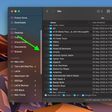Apple urgently requested suppliers to ship as many premium devices as possible to the United States by air freight, especially those priced above $3,000, in response to President Donald Trump's announcement of "reciprocal" tariffs of up to 104% on trading partners (via Nikkei).

Apple, along with Dell, Microsoft, and Lenovo, reportedly scrambled to mitigate the impact of the tariffs by accelerating shipments before April 9, the day the tariffs came into effect.
"We got a call from clients to make as many consumer electronics as possible and to ship as many of them by air as possible," said an executive at a supplier to Apple, Microsoft, and Google. "But the biggest challenge is that we don't have so many components and materials in stock."
The last-minute rush has created logistical challenges, with suppliers struggling to fulfill orders due to component shortages and tight shipping deadlines. All customs clearances had to be completed before midnight on April 8, U.S. time, creating what one international air shipping manager described as "a race against the clock."
The action comes as Chinese exports on Wednesday faced their biggest U.S. tariff of 104%. This is a combination of 20% levied earlier, 34% announced last week, and 50% imposed by Trump hours earlier following Beijing's refusal to withdraw a retaliatory tariff on U.S. goods.
Apple has been evaluating various strategies to minimize the impact of Trump's tariffs. The company has been diversifying its manufacturing base for years, with India becoming an increasingly important production hub.
A recent report suggests Apple plans to source more iPhones for the U.S. market from India, where tariffs are set at 26% compared to the 104% tariff on goods from China. The company expects to produce approximately 25 million iPhones in India this year, potentially meeting around 50% of U.S. iPhone demand in 2025.
The tariff situation has already had a substantial impact on Apple's stock, which has fallen nearly 23% since last Wednesday, as investors worry about the potential effects on the company's profits and global supply chain.
Apple CEO Tim Cook successfully secured exemptions for Apple devices during Trump's first term, but he faces bigger challenges this time around. The company now appears to be pursuing a dual strategy of short-term logistics adjustments while seeking longer-term political solutions.
Note: Due to the political or social nature of the discussion regarding this topic, the discussion thread is located in our Political News forum. All forum members and site visitors are welcome to read and follow the thread, but posting is limited to forum members with at least 100 posts.





















